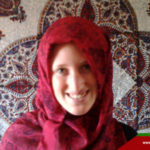Syed Rizwan A. Rizvi, New Jersey
What is the Mushaf of Fātimah? Did the prophet and his household know about this book?
Shaykh Kulaynī narrates in his book from Abu Basīr that he said: “I went to Imām as-Sādiq (as) and said: May I be your ransom, I want to ask you a question, what is the book of Fātimah? He replied: It is a book three times the Qur’ān you possess today in length, by Allah it does not consist of one letter of the Qur’ān you possess today! Abu Basir says that I commented: By Allah, this is complete knowledge. The Imām replied: This is also knowledge, but not complete knowledge.”1
Did the Prophet and his companions know about the Qur’ān of Fātimah and its content? If the Prophet did not know about it and its content, then how come his household did? He was a Prophet of Allah and if he knew about it, why didn’t he inform the Ummah? While Allah says in the Qur’ān: “O Apostle! Communicate that which has been sent down to you from your Lord, and if you do not, you will not have communicated His message, and Allah shall protect you from the people. Indeed Allah does not guide the faithless lot.”
The Mushaf of Fātimah Any written content that is compiled between two covers is called a Mushaf. Therefore every book can be called a Mushaf. During the advent of Islam, the Qur’ān was also called ‘The Mushaf’. 2 There are certain books mentioned in Islamic sources that are exclusively for the infallibles and that only they were informed of their content, like the Book of Ali and the Mushaf of Fātimah. In these sources, the last book has been mentioned as, the Mushaf of Fātimah, the Sahifah of Fātimah and the Book of Fātimah. 3
The Writing of the Mushaf of Fātimah After the demise of the Prophet, his daughter, Lady Fātimah was in extreme grief and enduring the absence of her father was very difficult for her. It is mentioned in authentic ahādīth that during the period after the prophet’s demise until the martyrdom of Lady Fātimah, an angel would descend upon the prophet’s daughter and express his condolences so that she would be calmed. This angel, known to be Gabriel in some ahādīth informed Lady Fātimah of her father’s status in Barzakh and of the following incidents that would take place.
He would also inform her of the destiny of her progeny. Imam Ali (a) would write these messages and this resulted in the collection of the Mushaf of Fātimah.” 4
The fact that angels would speak to Lady Fātimah is not unlikely; because angels have spoken to Maryam as it is mentioned in the Qur’ān: “And when the angels said: O Mary, Allah has chosen you and purified you, and He has chosen you above the world’s women.” 5 Not to mention that Maryam was the greatest women of her era, while Lady Fātimah was the greatest women of all times.
The content of the Mushaf When examining the ahādīth, we find that the following issues are mentioned in this book:
Future prophecies 6
The will of Lady Fātimah 7
The name of all individuals that will rule until the Day of Judgment 8
Future events regarding her offspring
An outline of the prophet’s life and his status after his demise that was communicated to Lady Fātimah. 9
The Imāms’ emphasis on the uniqueness between this Mushaf and the Qur’ān
It is understood from some ahādīth that Sunnis were aware of this Mushaf and assumed that, according to the teachings of the Ahl al-Bayt (as), Shī’ah believe the Qur’ān has been distorted and the missing verses are mentioned in this Mushaf. Therefore the Imāms have sharply negated the existence of any Qur’ānic verses in this Mushaf. 10 The Late ‘Allāmah ‘Askarī says: “Some Sunni writers accuse those who defend the Shī’ah school of thought and say that they (Shī’ah) have a different Qur’ān named the Mushaf of Fātimah; because the book of Fātimah is called a Mushaf, and during the emerge of Islam some Muslims would also call the Qur’ān the Mushaf.” 11 In a hadīth by Imām as-Sādiq he insists: “By Allah, the Mushaf of Fātimah is with us and not one verse of the Qur’ān is mentioned in it.” 12
The sign of an Imām In a long hadīth Imām Ridā (as) mentions the signs of an Imām and says: “One of the signs of an Imām is that he possesses the Mushaf of Fātimah.” 13 Also Imām as-Sādiq (as) says: “Before being martyred, Imām al-Bāqir (as) gave me the Mushaf of Fātimah.” 14 This Mushaf has been with the Imāms since it was collected and has been passed on from one Imām to the next and it is currently in the hands of Imām Mahdī (aj).
The Prophet’s knowledge of the Mushaf Because according to most ahādīth, this book was written after the time of the prophet, he has not mentioned anything regarding it, but this does not mean he was not aware of it. We believe that he was able to see the future by Allah’s will. Even now, according to Qur’ānic verses, he is watching and witnessing our deeds and what takes place. This book is exclusively for the Imāms.
Moreover, the Mushaf of Fātimah is not part of the Qur’ān; therefore the prophet does not bear the responsibility of informing the Ummah of its content. 15 At the same time there are several issues that the prophet did not explain that his household was responsible of explaining instead. Therefore not informing others of an issue does not always mean not being aware of it.
Footnotes 1 Al-Kāfī, v.1, p.239 2 Lisān al-Arab, vol. 9, pg. 186. 3 Ibn Babwayh Qummi, Al-Imamah wal-Tabsirah, pg. 12 ⁴ Al-Kāfī, vol. 1, pg. 241 5 Āle Imran 42 6 Al-Ihtijāj, vol. 2, pg. 134 7 Ibid, vol. 1, pg. 241 8 Ibid, vol. 2, pg. 134 9 Al-Kāfī vol.1, pg. 241 10 Mughniyah, Muhammad Jawad, Al-Shī’ah fi’l-Mīzān, pg. 61 11 Ma’alim al-Madrasatayn, vol. 2, pg. 32 12 Al-Kāfī, vol. 1, pg. 238 13 Man Lā Yahduruhu al-Faqīh, vol. 4, pg. 419 14 Bihār al-Anwār, vol. 26, pg. 47. 15 As it is mentioned in the hadith of Thagalain:








